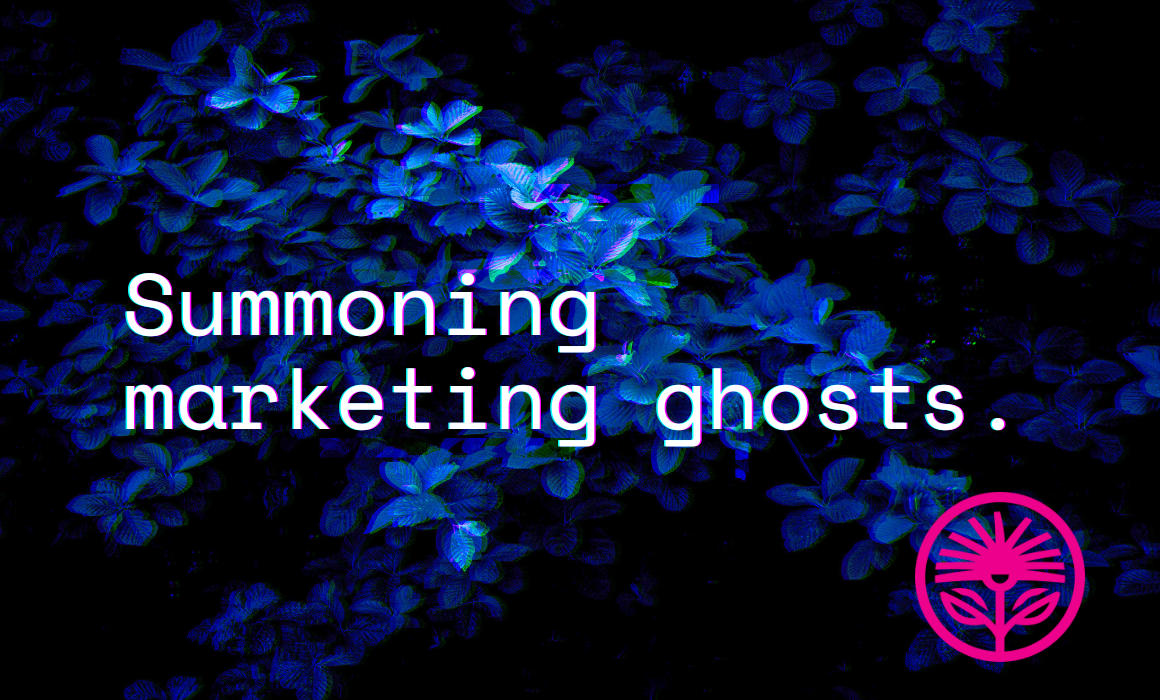Summoning marketing ghosts — Kelford Labs Weekly
By talking to the past.

“Today’s frontier LLM research is not about building animals. It is about summoning ghosts.”
— Andrej Karpathy
There’s a common trope in horror movies that ghosts are stuck in the past.
They’re clinging onto something that happened to them long ago, and they can’t move on or accept the present.
So they haunt whoever’s nearby or seems responsible, until a few plucky paranormal investigators confront and free them from their prison of memory.
At the heart of the whole thing is that they’re stuck, they can’t onboard new information and make use of it. Everything they experience is contextualized within a confined period of time, and a set series of events, already gone and past.
And that’s the problem with large language models, too.
That’s not my idea, though, that’s from OpenAI co-founder and former director of artificial intelligence at Tesla, Andrej Karpathy.
He was on Dwarkesh Patel’s podcast the other week, and he talked about the limitations of large language models. He said it’s wrong to think of them as living intelligences, but instead as “ghosts” of what humans have done and said and written before.
In his blog post on the topic, he writes, “They are these imperfect replicas, a kind of statistical distillation of humanity’s documents with some sprinkle on top.”
In the podcast, I was heartened to hear him share my feeling that LLMs are best at “boiler plate,” best practice-y stuff, not novelty in concept or execution.
“They’re very good at stuff that occurs very often on the internet,” he says. But when he was creating a new software application, he found that they frequently held him back.
They weren’t very helpful “because they have too much memory from all the typical ways of doing things on the internet, that I just wasn’t adopting,” he says.
The point is: When we’re trying to do or say something genuinely new, we will be least helped by AI tools like ChatGPT.
Because we’re not chatting with a living intelligence, we’re summoning the ghosts of content long past.
Ghosts inhabiting unmoving weights and parameters deep inside a neural net, briefly revived within thousands of GPUs, prompted to utter fragments of the memories to which they cling.
But I suspect you started your business because you wanted to do things differently.
Because you knew you in particular could create unique value for your best clients.
I also suspect that you wouldn’t consider your work a rehash of best practices or a little bit of everything everyone else has already done.
I don’t think you think of your business as summoning the ghost of other people’s previous work.
So why would we summon the ghosts of someone else’s marketing content?
This isn’t to say that LLMs can’t be helpful at all. As I frequently find myself pointing out, I use this stuff all the time. My API bills and monthly subscriptions are... significant.
But when you use something all the time, you quickly find its weakest points. You learn to avoid, overcome, or augment them to be useful where they previously weren’t.
So I’ve learned systems and workflows for generating novel ideas and “tokens” outside of the LLM, in the real world, and providing this new, fresh, and alive context to the model.
That allows the “ghosts” in the machine learning algorithms to produce things that feel new, because they are. Because they don’t come from the past, but from my clients’ present experiences.
This isn’t a technique unique to me or one I’m protecting.
I want everyone who currently uses LLMs to help create marketing content to make sure they’re generating novelty, not just tokens. The internet has enough of everything that’s come before.
And so have your clients.
So make sure you’re taking time to think deeply about your value and who values it most. To articulate and document why you do things the way you do, and why you don’t do other things.
To write down how you do what you do and who it’s best for.
That’s information that no one else can give you, and no tool can produce on its own. It must come from you, from your lived and worked experience.
It can’t just be consistently phrased, it must be coherently practical.
If your prospects wanted to summon ghosts, they could talk to ChatGPT themselves, and probably already do.
No, they need something ChatGPT can’t provide: Real-world insight, from real-world experiences.
They need living value, not the ghosts of value past.
Reply to this email to tell me what you think, or ask any questions!
Kelford Inc. shows communicators the way to always knowing what to say.



